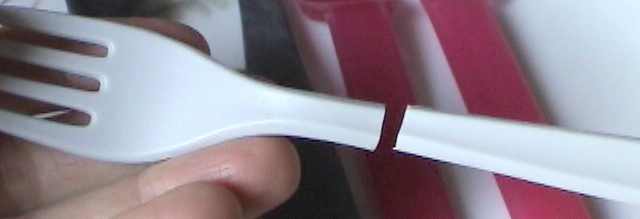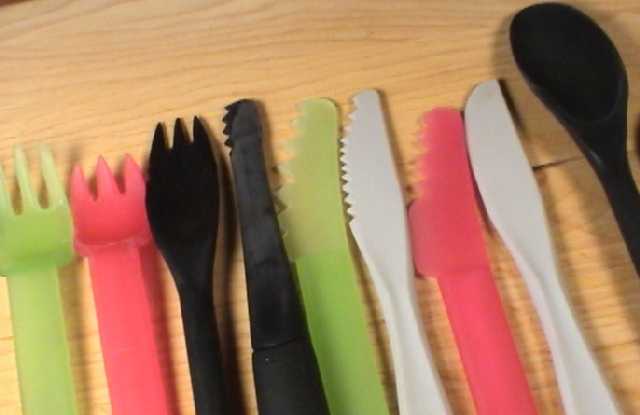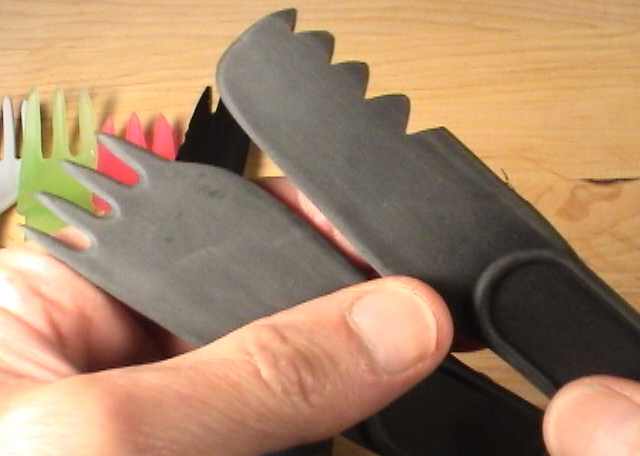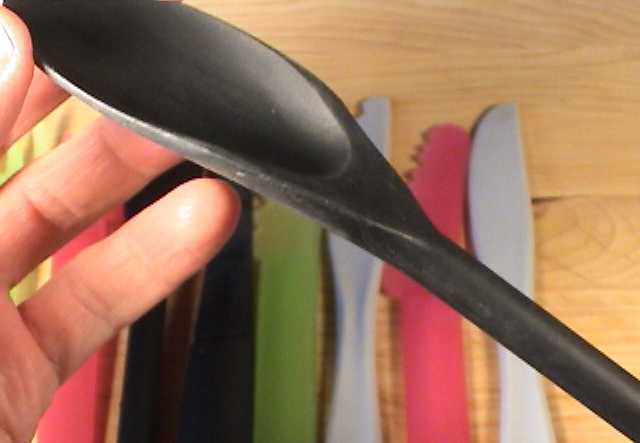1)
Plastic knives can cut hot, moist bread
I don't wait for fresh bread
to cool down
The plastic knifes are much more useful than steel knives when
for cutting hot, moist bread that was just removed from the oven. For some
reason, fresh bread sticks to a stainless steel knife, even when the knife
has been dipped into butter or oil. However, the bread does not stick well
to a plastic knife, especially when dipped into oil or butter. Therefore,
after baking fresh bread, I can take fresh bread directly from the oven
and immediately slice it and eat it.
I don't have to wait for it to cool down.
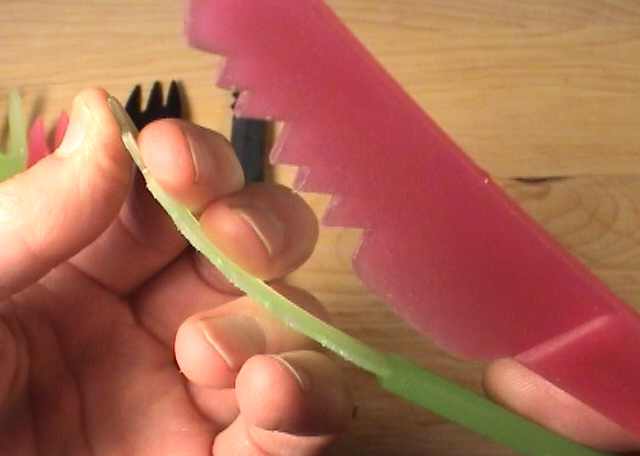
In the photo below, I am holding a piece of my freshly baked
bread in a napkin because it's very hot, and as soon as I start to cut
it open, steam will come out of it. I am dipping the plastic knife into
a small jar of refrigerated olive oil.
Incidentally, the flexible plastic
knives are excellent for spreading butter, refrigerated olive oil, mayonnaise,
and other soft items onto bread.
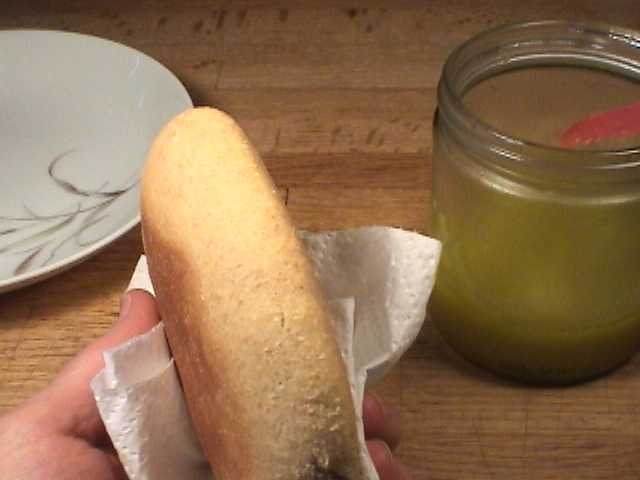
The series of photos below show how quickly and easily this
plastic knife can cut through this hot, moist piece of bread. I can slice
and eat my fresh bread within seconds
of baking it. I don't have to wait for it to cool down.


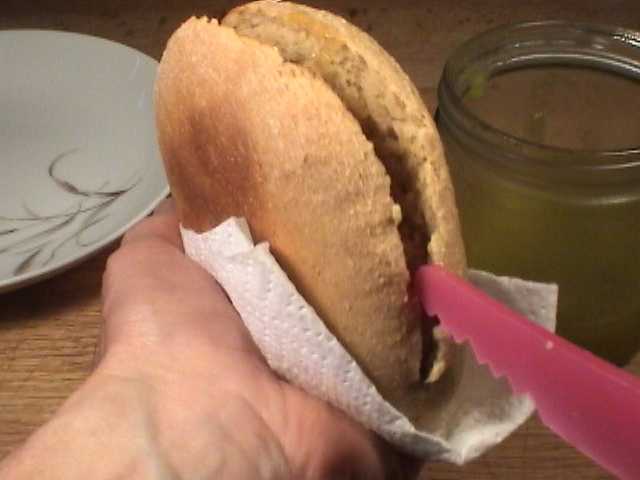
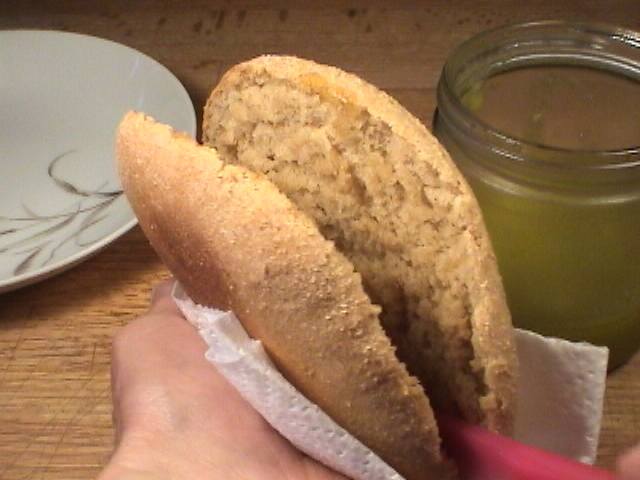
|
|
